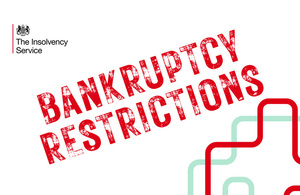Insolvency Practitioners’ Campaign against Energy Firms and Suppliers is Pointless
Britain’s leading professional association for insolvency and business recovery specialists has launched an astonishing attack on suppliers who raise prices or stop serving companies that have fallen into insolvent administration.
According to R3, debt-chasing suppliers such as utility companies are responsible for 14% of liquidations and the rapid increase in pre-pack administrations, in which a buyer is sought before management relinquish control of the business.
R3 claim that amending the Insolvency Act 1986 to stop suppliers demanding ‘ransom payments’ from firms in administration would reduce the number of liquidations, but I disagree.
The fact is, if you’re doing business with a company that owes you money, wouldn’t you review the terms of the agreement going forward, principally to reduce yourself from exposure?
Of course you would because you have to protect shareholders and customers, and keep prices as low as possible to remain competitive in the marketplace.
If we are trading and I’m unduly exposed to a loss that I have problems recovering, of course it’s OK to review the terms and conditions of my contract with you.
Or to put it another way; if you bought a house and the previous tenants said they’d been burgled several times; wouldn’t you take steps to secure the accommodation?
Suppliers should be free to pursue outstanding payments as they please within the law and the government has already taken steps to deal with the utility companies.
Earlier this month, the UK’s energy regulator, Ofgem, announced plans to restrict the charges of Britain’s biggest utility suppliers (E On, British Gas, Npower, EDF, SSE and Scottish Power) and is encouraging them to sell off up to 20% of the electricity they generate to smaller companies such as Marks and Spencer and Tesco.
Personally, I think R3’s campaign has little merit. The Insolvency Act 1986 was written by and for insolvency practitioners and is therefore biased in their favour.
Amendments to the act, written by another group of insolvency practitioners, are unlikely to reduce the number of liquidations any time soon.
What Is a Bankruptcy Restrictions Order (BRO)?
When you declare bankruptcy, you enter a 12-month period as an “active bankrupt,” during which you must adhere to a set of restrictions. If you…
Read MoreKingsway Square Limited (In Administration)
Did you purchase an off-plan property with Kingsway Square Limited (In Administration) which has not been developed – would you like your deposit returned? Are…
Read MoreGibraltar Financial Services Commission (GFSC) – Did they fail Loan Note Holders?
As a loan note holder, you may have placed your trust in regulatory bodies such as the Gibraltar Financial Services Commission (GFSC) to safeguard your…
Read MoreGibraltar Financial Services Commission (GFSC) – 100% Asleep at the Regulatory Wheel
Faith in Regulations Insolvency & Law (I&L) recently received confirmation from the Gibraltar Financial Services Commission (GFSC) that Castle Trust and Management Services Limited (CTMS)…
Read More


